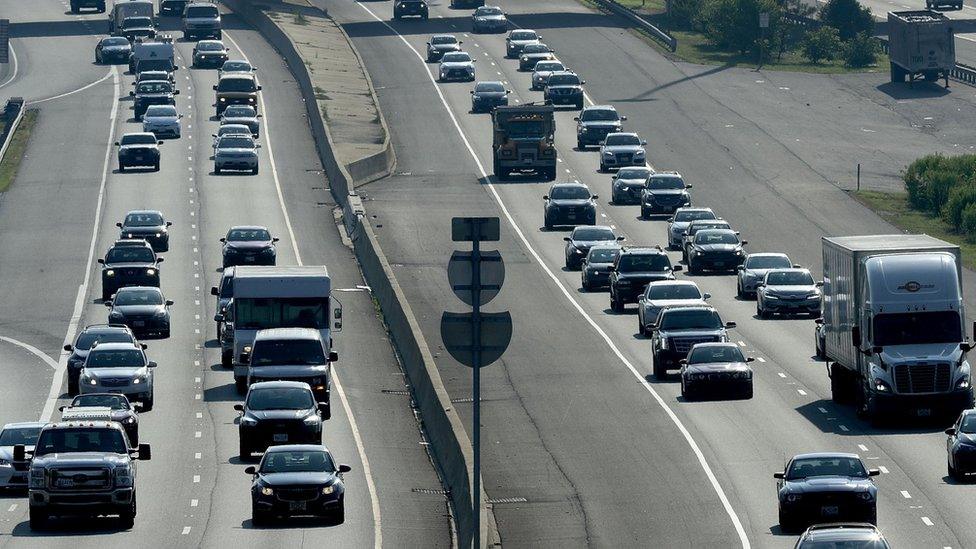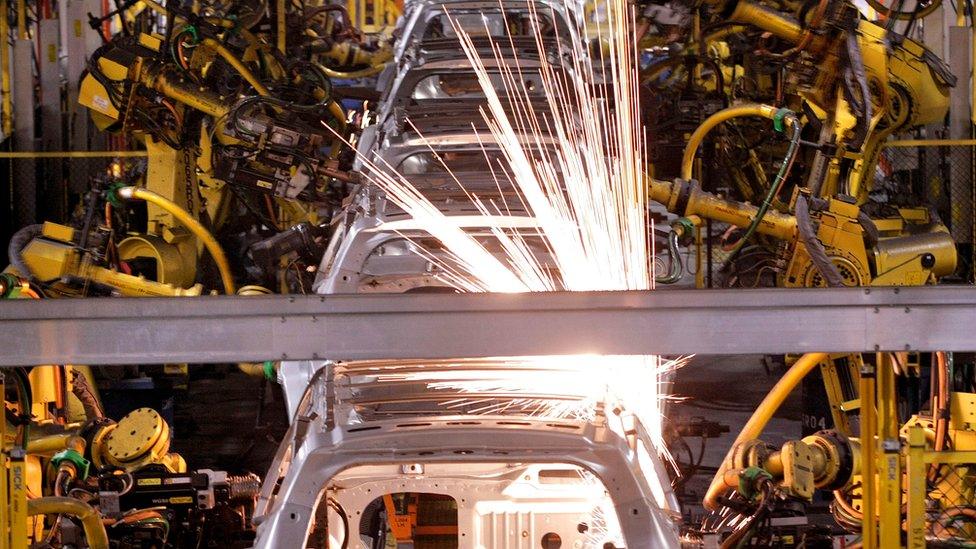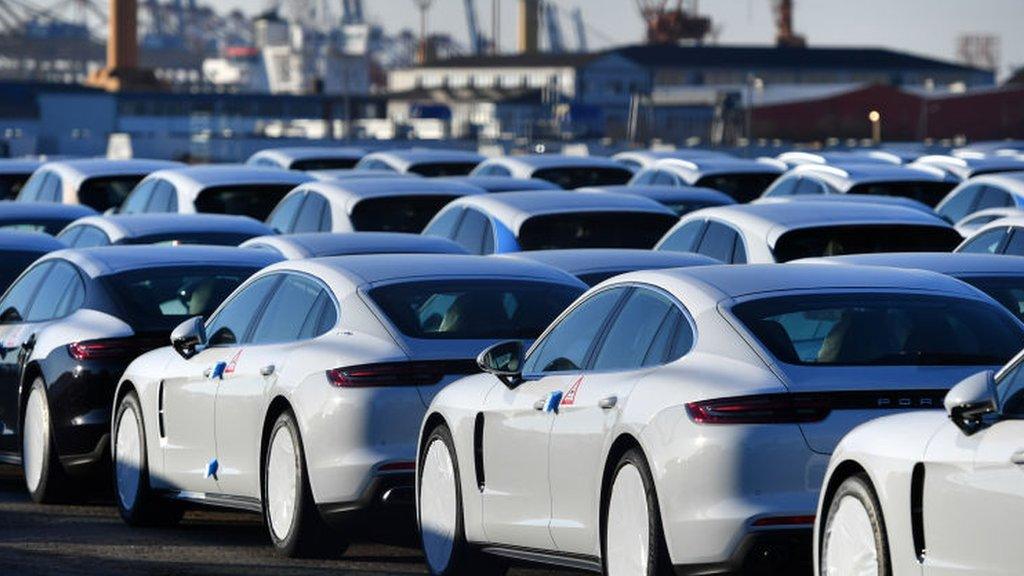US eyes freeze of fuel efficiency rules
- Published

The Trump administration has proposed weakening rules that require carmakers to build cleaner, more fuel-efficient models.
It wants to scrap an Obama-era plan to steadily raise fuel efficiency requirements, instead locking in the standards at 2020 levels.
The administration also wants to end a waiver that allowed California to set its own car pollution rules.
Officials said the plan, external would provide a "time-out" from increasing standards.
However, the proposal faces resistance within the US.
Attorneys general from 20 states, including California, as well as Washington DC have already pledged to fight the change in court.
"Freezing or weakening these standards puts the health of our children, seniors, and all communities at risk, and increases the rising costs of climate change for our states," the coalition said in a statement, external.
"We are prepared to go to court to put the brakes on this reckless and illegal plan."
'More realistic'
In 2012, the US outlined a plan requiring carmakers to increase the fuel efficiency of their models each year, achieving an average of about 50 miles (80 km) per gallon for the fleet of new cars and trucks sold by 2025.
The Obama administration estimated that the higher standards would save 12bn barrels of oil.
In 2017, President Donald Trump ordered a review of the car pollution rules, casting it as part of a broader effort to reduce regulations in the US.
The new proposal would freeze the standards for the fleet of new trucks and cars sold at the 2020 level - about 37 miles per gallon - a change the Trump administration estimates will increase daily fuel consumption by 2%-3% above forecasts.
Officials at the Department of Transportation and Environmental Protection Agency said the revised standards were "more realistic". They argued the change would help to reduce the expense of a car, encouraging buyers to switch to newer, safer models.
They are now taking public comments on the plan, as well as other alternatives. A final decision is expected this winter.
Negotiating time?
The effort follows the White House decision to withdraw from the Paris climate accord and comes as other countries, including China, move ahead with more stringent rules.
Reaction to the proposal was mixed in the US.
Carmakers initially sought to ease the Obama-era requirements, arguing that the growing popularity of SUVs and pick-up trucks had put the targets out of reach.
But they have since grown worried about the likelihood of a lengthy legal fight between the federal government, California and other states.
Under the 1970 Clean Air Act, California can seek a waiver from the federal government to set its own emissions rules, provided its standards are at least as protective.
The exception, granted in recognition of California's pre-existing efforts to tackle the issue, has allowed California to set the bar for the industry. About a dozen states now follow its rules.
On Thursday, California Governor Jerry Brown said the Trump administration's plan to create a single set of standards for all 50 states was "a betrayal and an assault on the health of Americans everywhere".
"California will fight this stupidity in every conceivable way possible," he said.
Two organisations representing carmakers issued a joint statement saying the release of the proposal should set the stage for "substantive negotiations".
"We urge California and the federal government to find a common sense solution that sets continued increases in vehicle efficiency standards while also meeting the needs of America's drivers," the Alliance of Automobile Manufacturers and Association of Global Automakers said.
The Environmental Defense Fund called the proposal a "massive pileup of bad ideas" that would lead to families spending more on petrol each year.
Its president Fred Krupp said it was a proposal that "no one - not the American public, not the states, not even most automakers - really wants, and one that's being presented to the public under the false and easily discredited guise of improving public safety".
- Published9 November 2017

- Published24 May 2018
